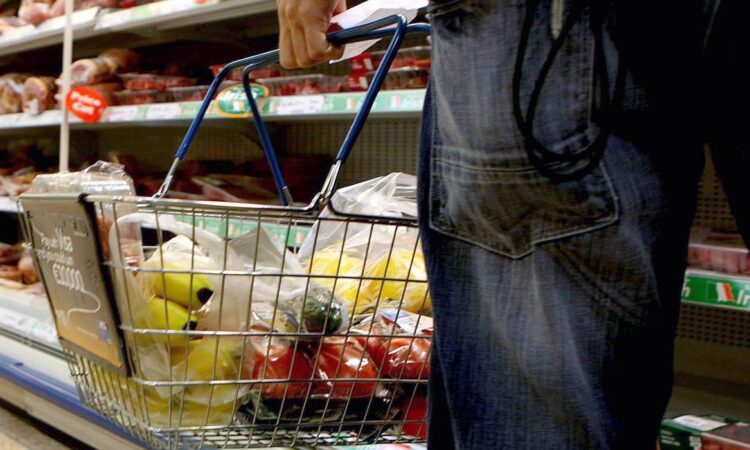Inflation cools to 7.7pc in March but mortgage payments, energy and food prices still rising

Price rises cooled in March after a surprise inflation spike the previous month, but mortgage interest payments, energy and food prices continue to rise.
he consumer price index (CPI) rose 7.7pc in March, compared to a year earlier, the Central Statistics Office (CSO) said on Thursday.
That is down from 8.5pc in February, an uptick that ended a three-month run of slowing inflation.
Housing and utilities, including energy, drove headline inflation in March, the CSO said, rising 20.8pc.
Within that category, mortgage interest payments were up 35.3pc compared to March last year.
Gas prices rose 85.9pc in the year, despite falling wholesale prices, while electricity prices rose 62.7pc.
Food and non-alcoholic beverage prices rose 13.1pc, with sugar up 36.8pc, frozen fish rising 26.9pc, fresh whole milk surging by 24.3pc, butter prices up 21pc and eggs up 20pc.
The cost of going to restaurants and staying in hotels was up 8.9pc year on year, while clothing and footwear prices rose 6.7pc.
Headline prices continued to rise in the month between February and March, increasing 1.1pc.
The most significant monthly price changes were in transport (up 2pc) and restaurants and hotels (up 1.9pc).
The price of alcohol and tobacco fell slightly in the month.
Irish inflation was slightly above the eurozone average of 6.9pc in March, according to a flash estimate by the bloc’s statistics agency, Eurostat.
Eurostat – which measures a slightly different basket of goods and services to the CPI – estimated annual Irish inflation at 7pc in March, down from 8.1pc in February.
Food prices are driving the inflation hike in Europe, with energy prices falling year on year.
Core inflation, which strips out volatile food and energy prices, hit a new eurozone record last month, meaning further European Central Bank rate rises are on the cards.
Irish mortgage interest rates held steady in February, with Ireland recording the third-cheapest mortgage rates in the 20-member eurozone, but that is unlikely to hold as Irish banks and non-bank lenders catch up with the ECB.
There has also been a slowdown in the number of people approved for a mortgage in the first two months of the year as higher interest rates bite.
Last month the ECB warned that companies across Europe were using a fall in input costs to pad their profits, instead of passing on lower prices to consumers.
And around half of consumers expect spending pressures to worsen, according to the most recent Credit Union Consumer Sentiment Index, with 35pc of consumers saying they are struggling financially.






